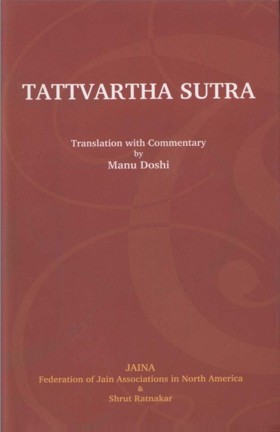09.48 Pulakbakushkushilnirgranathasnataka Nirgranthāh
Audio: Sanskrit: पुलाकबकुशकुशीलनिर्ग्रंथस्नातका निर्ग्रंथाः।
Hindi: पुलाक,बकुश, कुशील, निर्ग्रन्थ और स्नातक ये निर्ग्रन्थ के 5 प्रकार है।
English: Nirgranaths are of the categories of Pulāk, Bakush, Kusheel, Nirgranth and Snātak.
Nirgranth denotes one having no possession. As such, Jain monks can be called Nirgranth. As a matter of fact, the contemporary Buddhist texts used to refer to Lord Mahavir as a Nirgranth. This sutra specifies the following five categories of monks, viz. a) Pulāk denoting those, who try to stay on the path laid by the detached Lords; but fail to observe restraints, b) Bakush denoting those who care for the body, look for physical comforts, do not accommodate themselves within the limited space and are prone to indulge in faults or transgressions; c) Kusheel of two types, ī) Pratisevanā Kusheel denoting those who indulge in transgression under the influence of sense organs and ii) Kashāy Kusheel denoting those who indulge in light defilement; d) Nirgranth denoting those who are close to omniscience and e) Snātak denoting those who have attained omniscience.
 Acharya Umaswati
Acharya Umaswati
